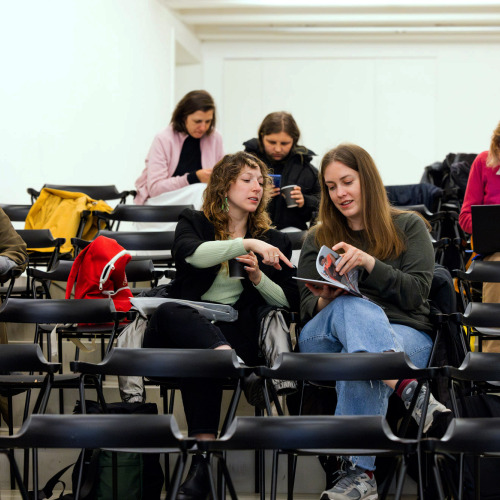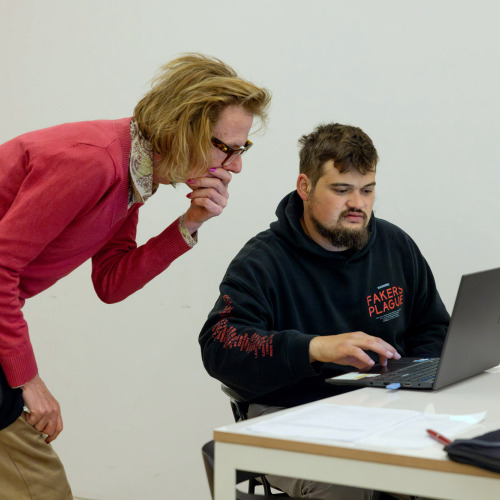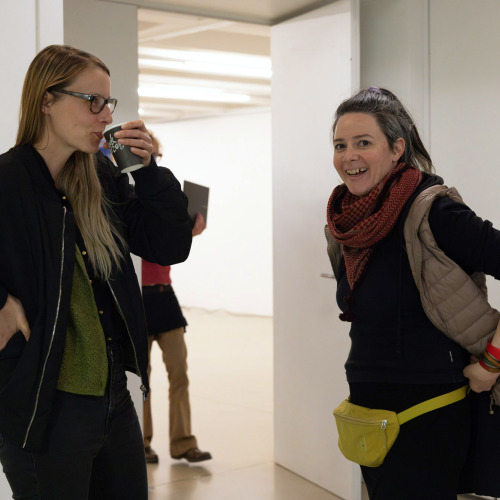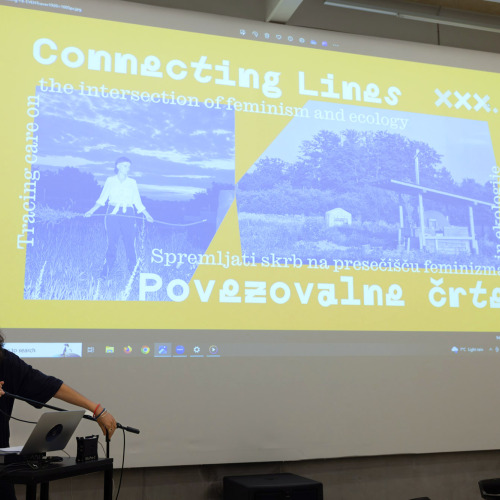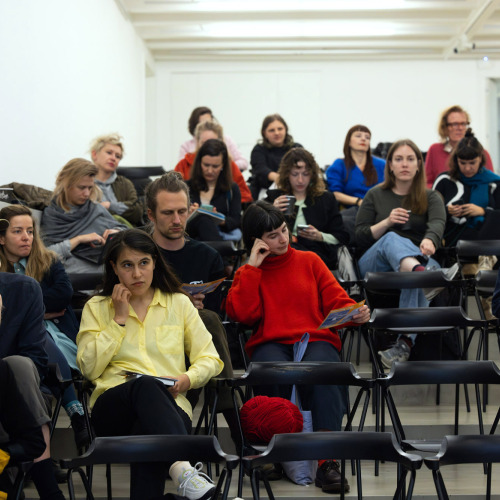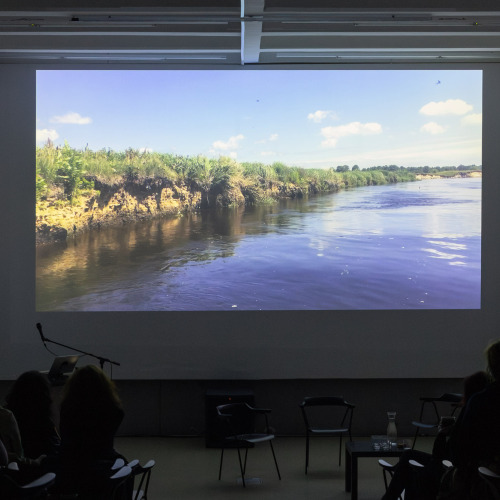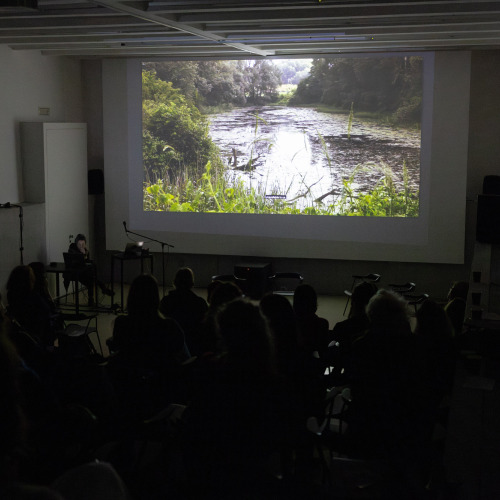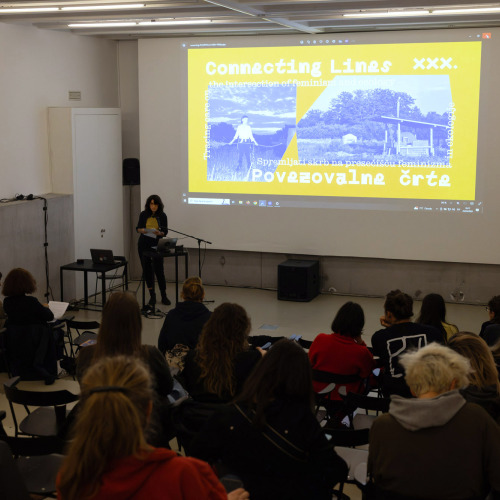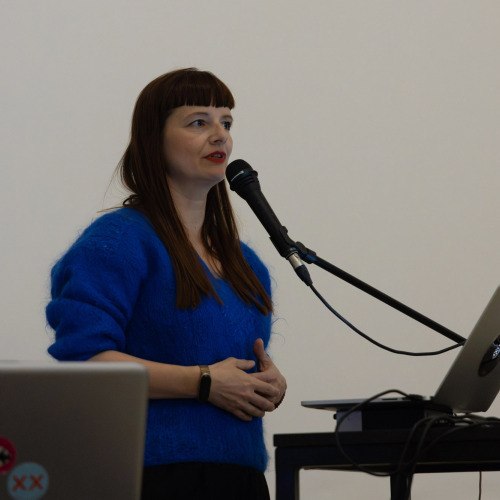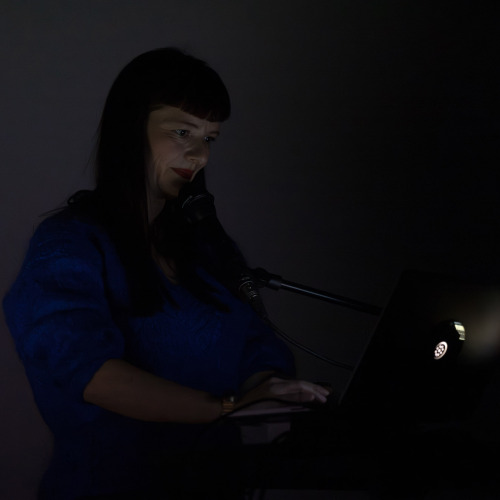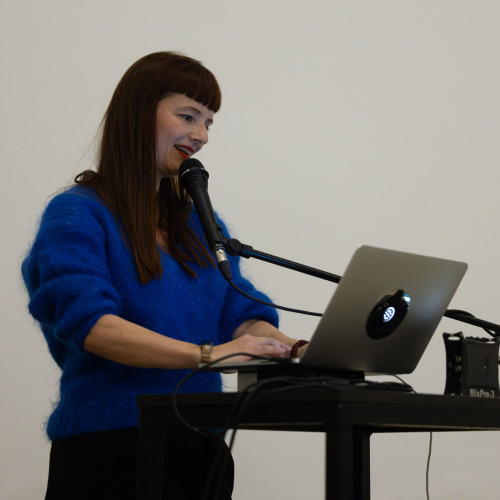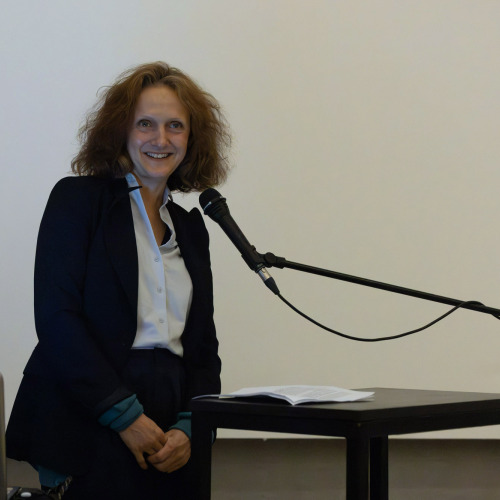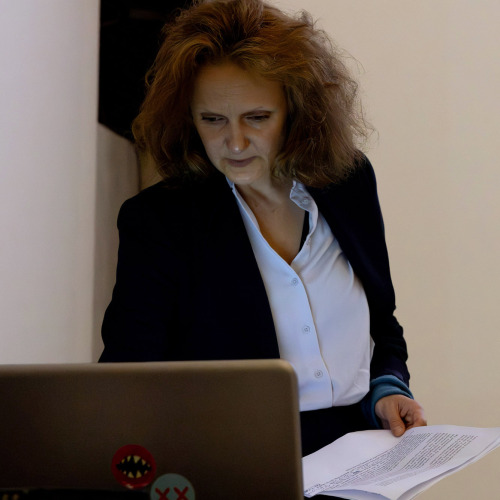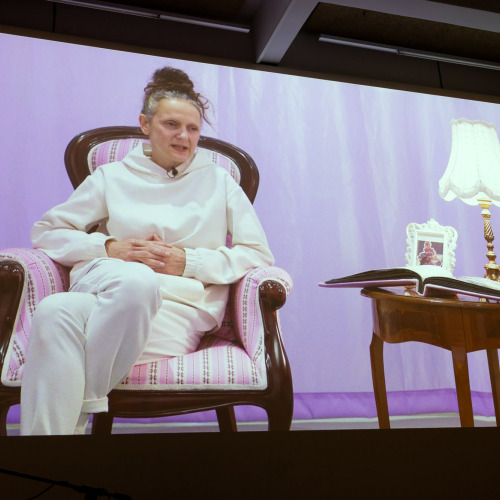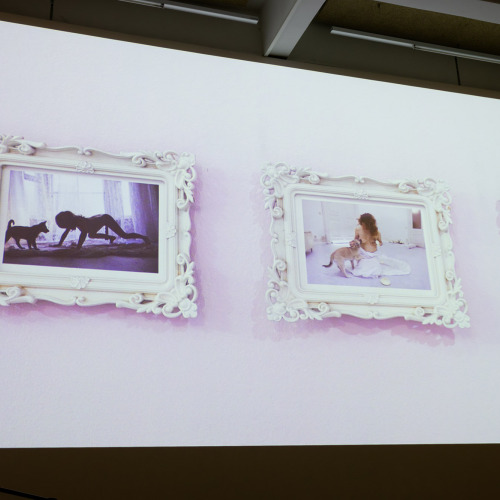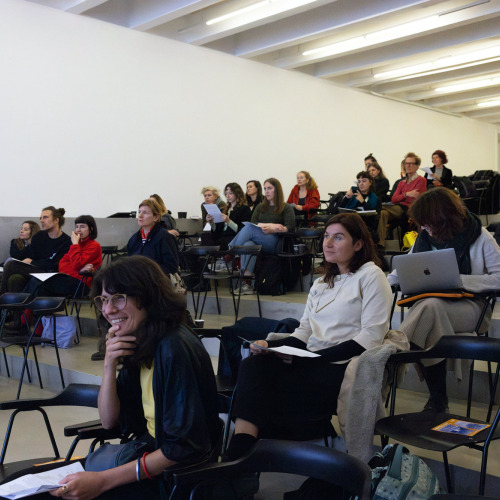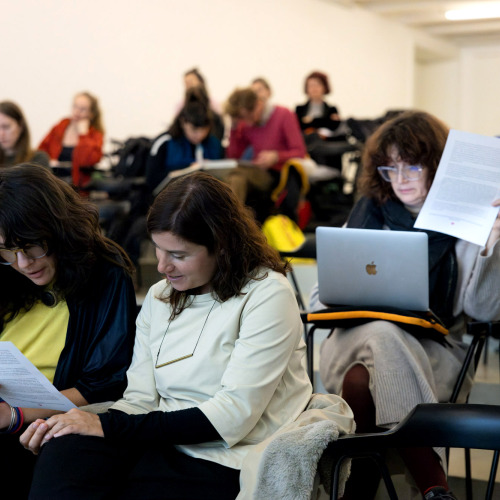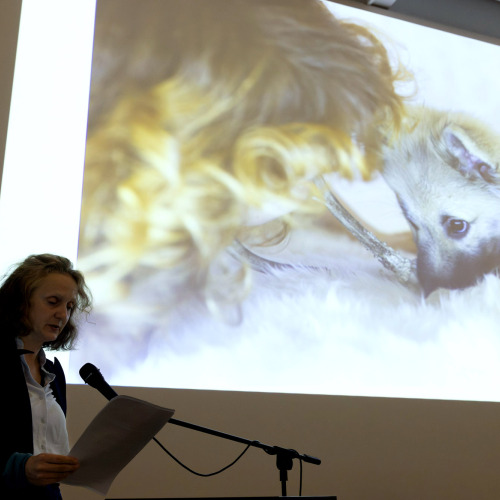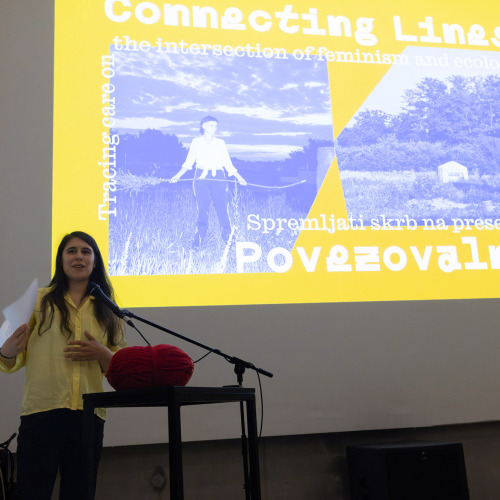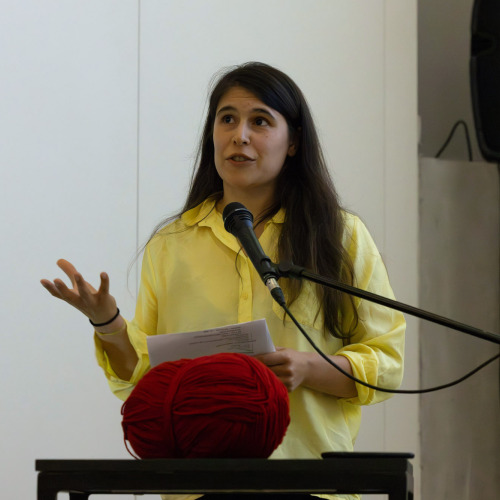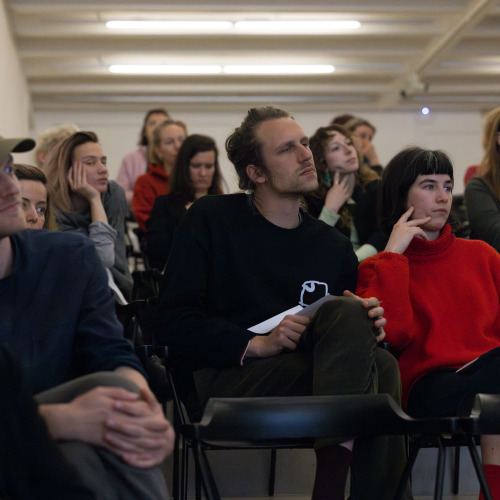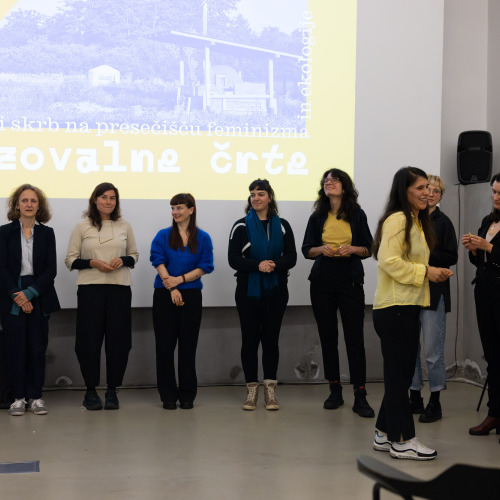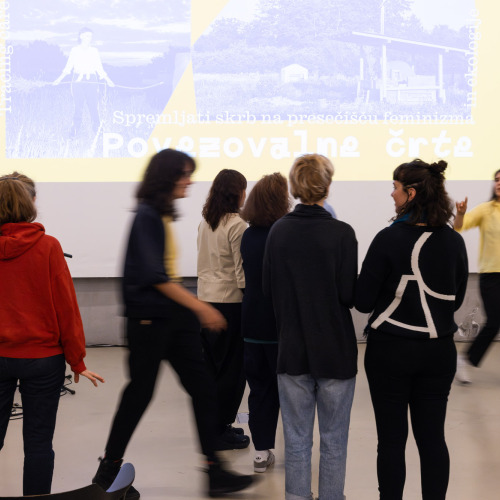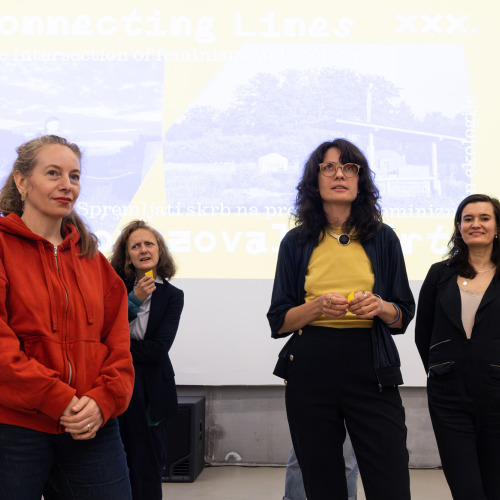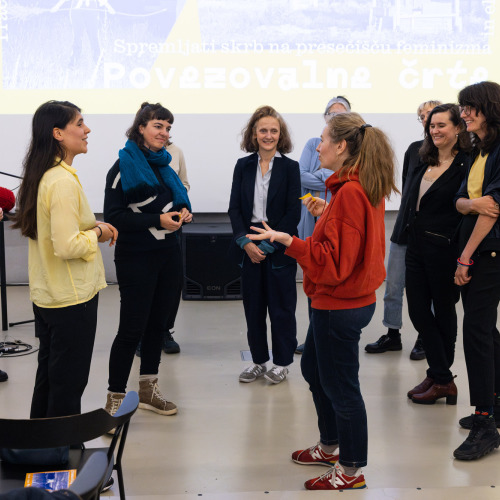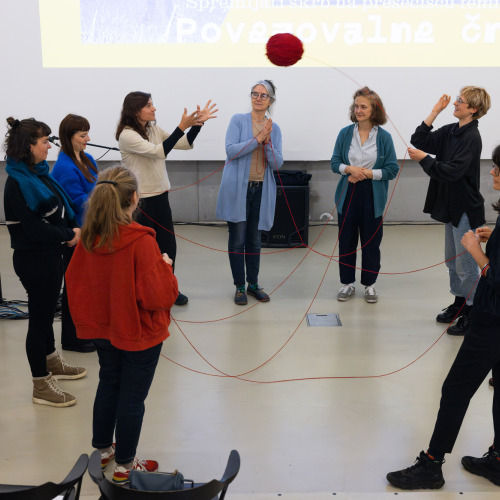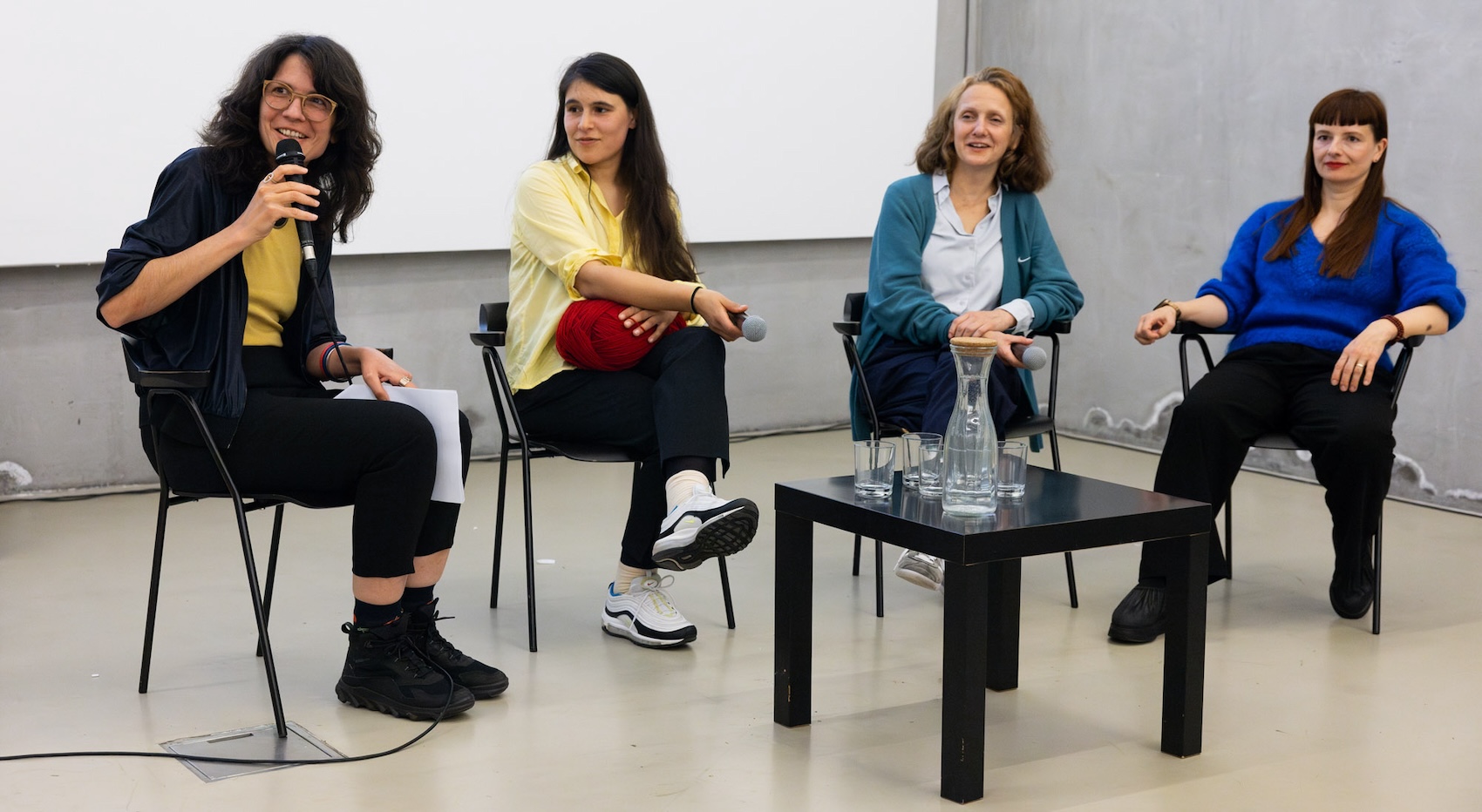

Alternative Futures
Reflecting on the 3rd panel of the International Conference on Ecology, Feminism and Care; Alternative Futures
Within the framework of the TRACTS and City of Women international conference Connecting Lines: International Conference on Ecology, Feminism and Care, we tried to bring together discourses on gender equality and care in the deteriorating conditions of the late Anthropocene. For this purpose, we brought together artists and researchers who explore the issues of the climate crisis and social justice from a feminist, intersectional, queer, and decolonial perspective with a focus on care as a central paradigm for redefining our relationship with the environment and each other.
In the third of five parts of Reflecting, we will look at different artistic practices engaged with issues of ecology, feminism, and care by reflecting on (segments of) artworks presented within the conference format. Introducing works by Diana Lelonek, Ida Hiršenfelder, Maja Smrekar, Sophie Allerding, and Marwa Arsanios we will see how artistic strategies such as Live Action Role-Play, collective performance, film, video, and sound can bring about new visions of futurity that are not bound to binary categories.
In Bojana Kunst’s recent book Life of Art: Transversal Lines of Care, the author refers to and learns from ecofeminist practices but at the same time warns of the legacy of its sometimes essentialist propositions, which can reify the dichotomies such as nature vs culture or women vs men. Kunst talks of the danger of reconfirming the same binary categories, which could be said to have brought us to where we are now. The works presented in the third panel could be examples of “queering” such positions. The human-centered narrative on gender, when it expands to more-than-human or post-human, makes us stay within the ecofeminist critique while avoiding the naturalization of the gender binary. What unites the practices shared in this panel is the detachment from a humanist position and a simultaneously feminist and post-human or more-than-human approach.
The panel started with Diana Lelonek’s short video Forms of Survival, which presents a speculative future where art institutions are transformed in the face of climate, economy, democracy, and other crises. In the video, these institutions begin to take on various new roles in order to adapt to new conditions and face future challenges. This utopian or dystopian future from today’s perspective reminds us of the interruption brought on by the pandemic that shortly suspended the accelerated pace of development. It is also a self-critical reflection on the current state of cultural (over)production.
Ida Hiršenfelder, Maja Smrekar, and Sophie Allerding intervened in the conference by presenting performative works that allowed the audience to glimpse into their practices through lecture performances with sound, video, collective reading, and live-action role-play on stage.
Ida Hiršenfelder (beepblip) prepared an attentive listening session and lecture performance Wind Will Blow Us Away in which the sound of the wind becomes the active agent of the generated performative event. The lecture performance is based on Hiršenfelder’s Wind Will Blow Us Away multichannel composition following in the footsteps of Iranian poet Forugh Farrokhzad. In the artist’s words the sound piece “marks the trail of Luce Irigaray, whose respiratory philosophy looked from the West to the East with an innocent gaze of deep ecology in the hope that it would outgrow dualities and reconcile with the world as a whole.” You can listen to the piece here.
Manifesto on mOtherness; a participatory public reading prepared by Maja Smrekar followed. The presentation was based on the artist’s Hybrid Family (2016) project in which she went through the strenuous process of inducing breast milk to be able to nurture a puppy. By disrupting the canonical image of the caregiver as a mother of a biological child, Smrekar disconnects the human reproductive ability from the ability to provide care. Taking a more-than-human approach, Smrekar insists on care that can be enacted across genders and beyond the human mOther. You can read and see more about her work on her website.
Sophie Allerding's presentation LARP as a Tool for Environmental Storytelling was based on a collective performance in the form of a game enacted by the volunteers giving both the audience and the performers a glimpse into the technique of LARP (Live Action Role-Play). Allerding gave a short introduction to LARP as a tool for environmental storytelling by creating conditions to play out different speculative future scenarios and weave narratives collaboratively. Relying on the emotional investment that is as real in a game as it is in a real event, Alerding’s artistic research projects aims at testing collaborative imaginations of future post-human conditions.
After the live events and a roundtable between Ida Hiršenfelder, Maja Smrekar, and Sophie Allerding, we screened two recent films by Marwa Arsanios, Who Is Afraid of Ideology? Part 3: Micro Resistencias (2020) and Part 4: Reverse Shot (2022). The first two chapters of the Who Is Afraid of Ideology? series were presented in the framework of the 24th City of Women Festival in 2018 which explored forms of self-governance and knowledge production that have emerged from the Kurdish autonomous women’s movement. The two newer films portray on examples of employing coping mechanisms used within the framework of subsistence economies and the legal frameworks that enabled exploitation in the first place.
Who Is Afraid of Ideology? Part 3: Micro Resistencias (2020), shot in Colombia, shows communities who store seeds and resist industrial farming - in some sense illustrating Vandana Shiva's critique of the concept of top-down development as neocolonialism and as a mechanism that creates poverty by taking the means of survival out of the hands of people who had before been able to sustain themselves through subsistence economies. Who Is Afraid of Ideology? Part 4: Reverse Shot (2022) focuses on private property and land ownership, and looks at loopholes that could enable a break a from the property regime and thus release land from its bondage to capital.

